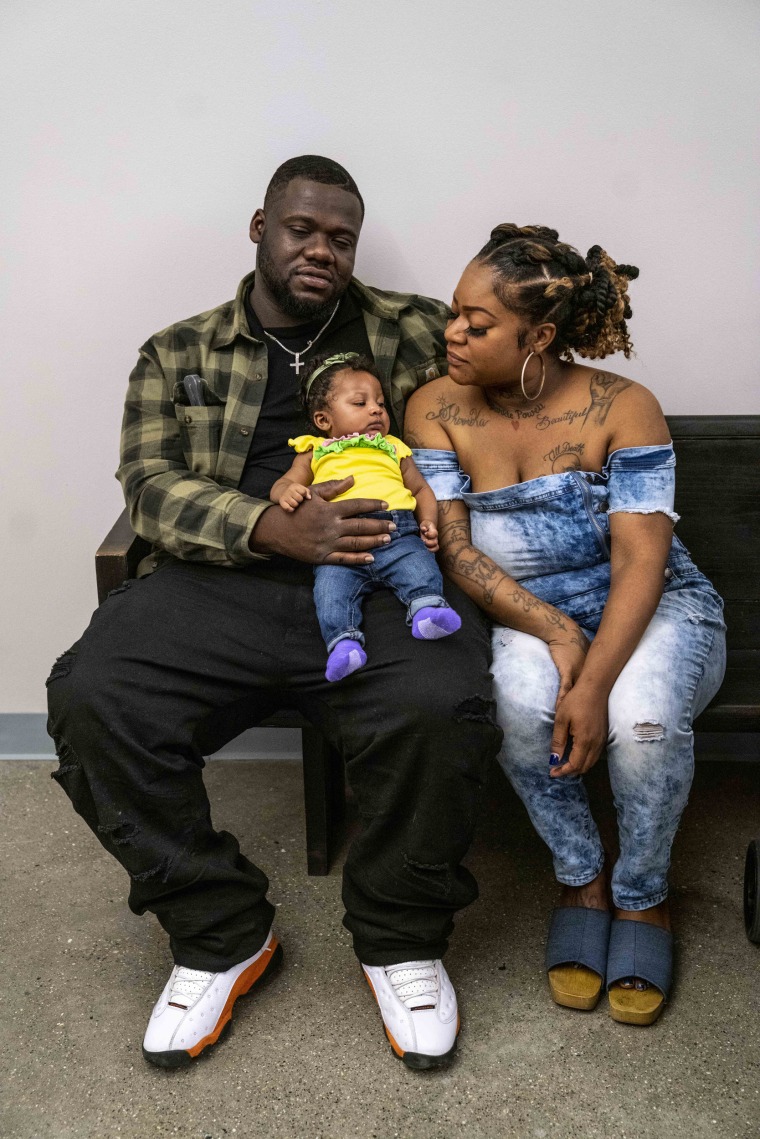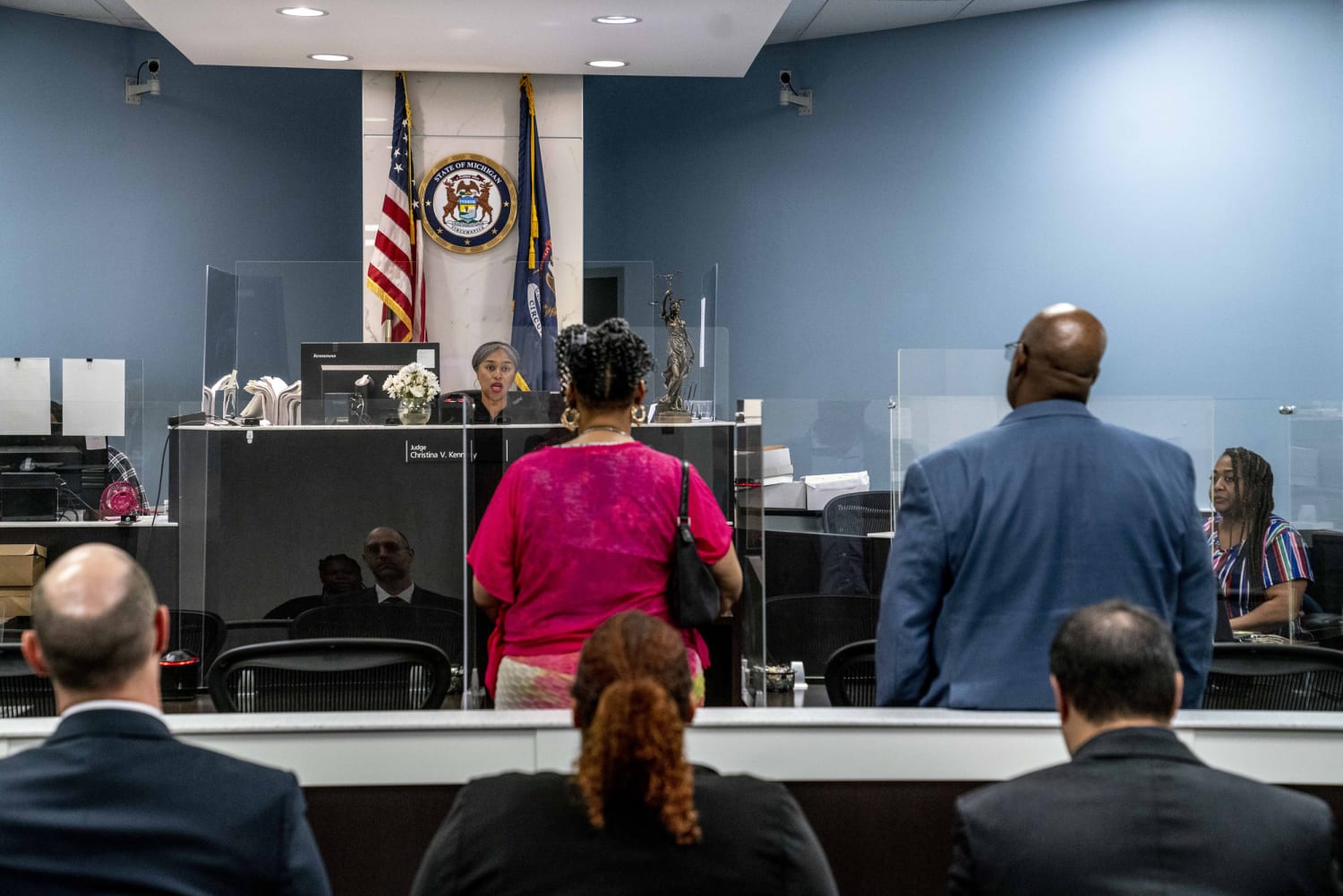The court couldn’t immediately say how many tenants failed to show up on Monday, but Chief Judge William C. McConico noted that Detroit’s housing court — like many such courts around the country — is now “completely different” than it was pre-pandemic.
Before Covid, when the city saw 10,000 evictions a year, tenants could be kicked out after missing a single court date. Now a state Supreme Court order requires two housing court appearances before an eviction. Some low-income tenants also now have access to free lawyers through a program that was funded during the pandemic by federal Covid relief dollars and is now supported by the city and a local foundation.
Kenyatta Jefferson, 31, experienced both the good changes and the bad on Monday.
He and his girlfriend, Shermeka Powell, 32, both had to miss work — he works in an auto plant, and she works at Ford Field, the city’s football stadium — costing them each a day’s pay, they said. They also had to bring their 3-month-old daughter, whose needs — and the fact that people kept stopping them to admire the baby — made it harder for them to arrive on time.
By the time they got to court for the second and possibly final hearing of their eviction, they were 10 to 15 minutes late, they said, and were told that a default judgment already had been issued in favor of their landlord, Jefferson’s mother.

That wouldn’t have happened if the court had still been online, Jefferson said. “I would have been on time and I wouldn’t have had to call out of work.”
Jefferson’s mother, who asked not to be identified, said in an interview that she also had to miss work, leaving her 24-hour day care business. It was worth it, she said, because her son doesn’t pay the rent, ran up an expensive water bill and is disrespectful. (She also said she believes her son was at least 30 minutes late for court.)
Thanks to the free legal aid program for tenants, Jefferson had access to help. He was directed to organizations that now have staff members working out of closets and offices around the courthouse. One of them began preparing paperwork to get his case reopened. He and Powell are hoping they can stay in the house they live in on Detroit’s east side. “It’s so unreal,” Powell said. “Having a home to live in when you have kids is really important.”
Across the country, far more courts are holding hearings online than before the pandemic, when it was relatively rare. And that’s not the only way that housing courts have changed, said Samira Nazem, who leads an eviction diversion initiative for the National Center for State Courts, which provides technical assistance to state court systems.
“There has been a culture shift in housing court,” Nazem said.
Source: | This article originally belongs to Nbcnews.com









